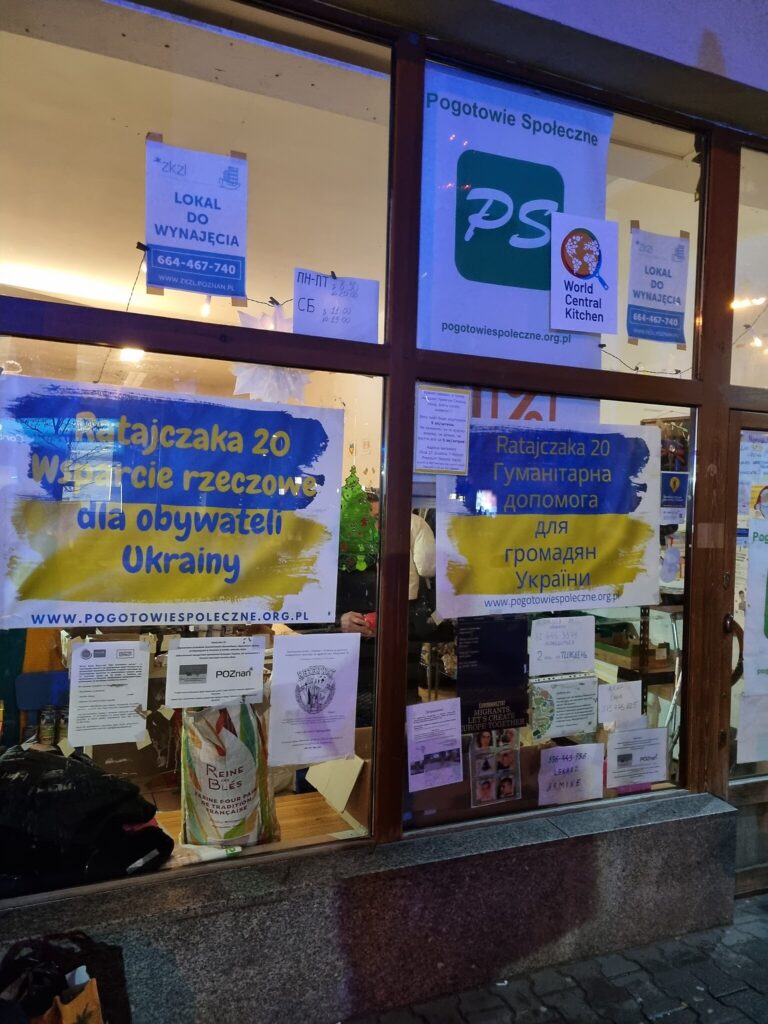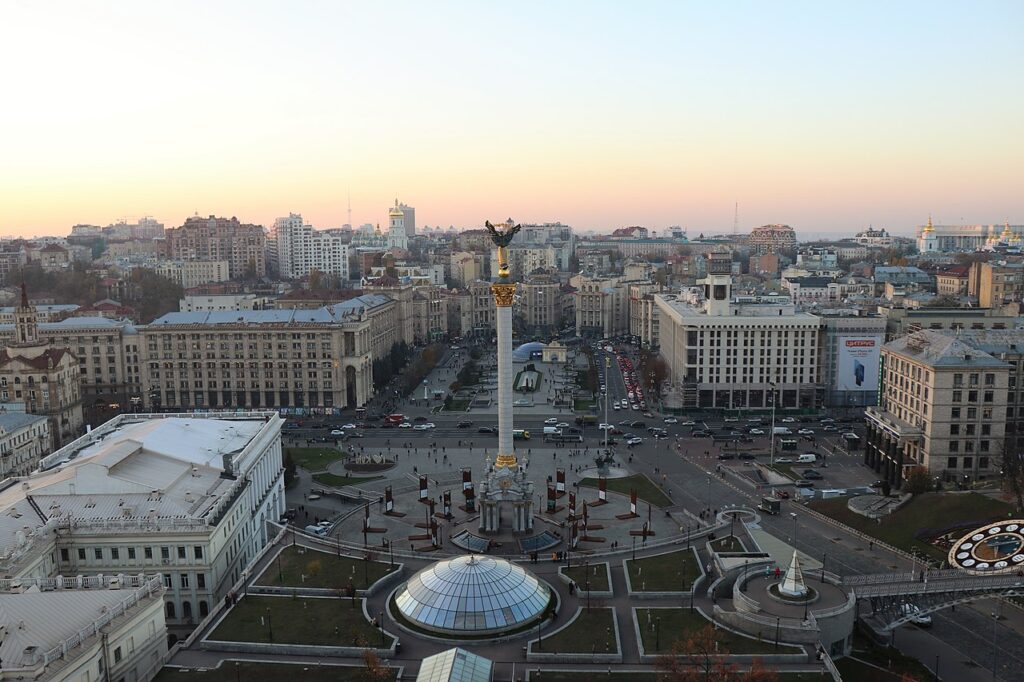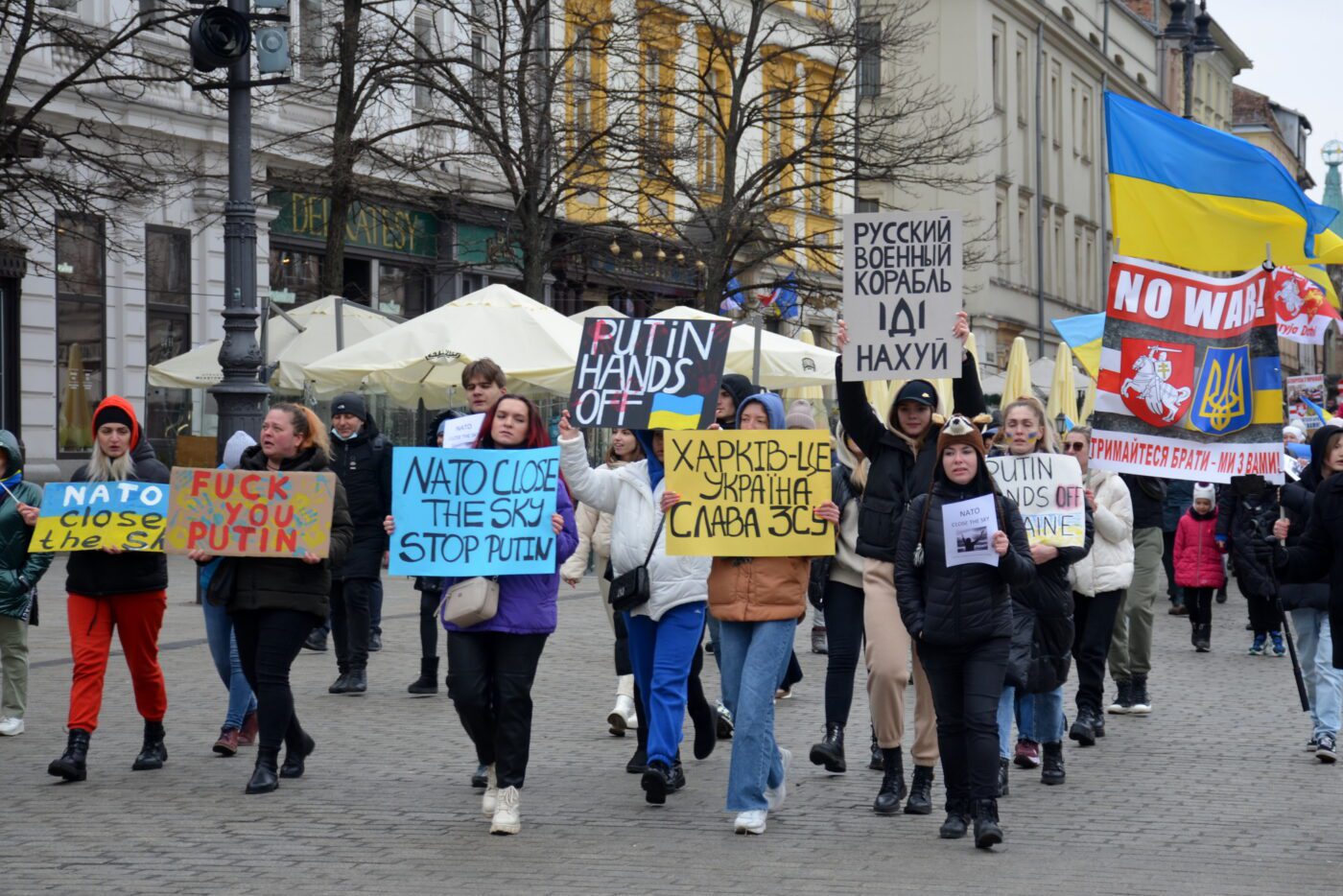On 24 February 2022, Russia’s armed forces launched a full-scale invasion into Ukrainian territory, initiating missile strikes on Ukrainian command centres, weapon depots, and airports. Ground troops began flowing in through the borders of Russia and Belarus, resulting in intense warfare that claimed the lives of thousands of unarmed civilians and left many more injured. Millions were forced to flee their homes, leaving their livelihoods in ruins. Those who survived the first hours of war faced an impossible choice to either flee the country or stay behind.
The Polish government’s response to the invasion was swift. The country opened its borders to refugees, providing them with camps and financial assistance. Equally commendable, were the grassroots efforts by Polish citizens to aid fleeing Ukrainians. The estimated minimum private expenses made by Poles in assisting Ukrainian refugees amounted to 5.5 billion Polish złoty (around 1.3 billion euros). Within the first three months of the conflict, approximately 77 per cent of adult Poles offered their homes as shelter to Ukrainian refugees, with 35 per cent participating in formal organisational assistance and various forms of volunteering.


However, the 2022 Russian military intervention was merely an escalation of a conflict that began as a Ukrainian revolution—known as the Euromaidan—in November 2013. Then President Viktor Yanukovych’s refusal to sign an EU integration agreement sparked mass protests, leading to his ousting in February 2014. Russia capitalised on the ensuing instability, supporting separatist rebels in eastern Ukraine. Soon, what began as low-level skirmishes evolved into an overt, though unacknowledged by the aggressor’s side, war between Russia and Ukraine.
Inspired by the significant social mobilisation observed among the Polish population, I conducted a study to analyse media coverage and social media discourse, aiming to discern shifts in Polish societal attitudes toward the Russian-Ukrainian armed conflict. The media sources under scrutiny included archives from Poland’s largest news platforms (TVP INFO, TVN24, & Polsat News), as well as posts on the Web 2.0 platform Twitter, currently known as X, spanning two distinct timeframes: from February 22, 2014 (the conclusion of the so-called Euromaidan) to December 31, 2014, and from February 24, 2022 (following Russian authorities’ declaration of war on Ukraine) to December 31, 2022.
In 2014, the majority of media coverage centred on critiquing Russia, with support for Ukraine often appearing secondary, superficial, and driven by a desire to enhance the news outlet’s public image rather than any genuine concern. Ukraine was often relegated to a mere backdrop for discussions about Russia’s political landscape and the perceived erratic behaviour of Putin and his inner circle. The actual challenges faced by residents in border areas, where Russia posed a constant threat, received less attention.
As time progressed, discussions about Ukraine’s security shifted westward, as political considerations took precedence. The real dangers facing the Ukrainian people were sidelined as politicians used their lives as bargaining chips to sway voters in upcoming elections. Promises of security or intimidation tactics were employed to influence voters, effectively pushing Ukraine to the periphery of the discussion.
In 2014, Twitter users in Poland predominantly used the platform to express their displeasure with the entirety of the Russian state and its shared history with Poland. Although hashtags aiming to convey emotions and support for Ukraine in its conflict with Russia were relatively common, a significant number of posts lacked any sympathy towards Ukraine and its citizens, with many containing negative sentiments instead. Discussions often referenced historical events, especially the Wolyn massacre—an act of terror during World War II in which Ukrainian units of the Soviet Army committed mass murder against Polish civilians. Additionally, there was a minor tendency to justify Russia’s actions by claiming that Ukraine was “never a real state and should not be one now.”
One must also recognise the significant percentage of statements that trivialised the situation. The life of the Russian president, his actions, speeches, and everything left unsaid, provided perhaps the most entertainment for many X users.
Moving to 2022, Polish media continued to be highly engaged in issues related to Russia and Ukraine. This time, however, the media played a significantly greater role in covering the situation of citizens compared to 2014. The response appeared to be less self-victimizing. Yet again, they first and foremost emphasised the geopolitical implications of the conflict, focusing on Poland’s role in defending its territory, and comparing the Polish reaction to the humanitarian crisis of Ukrainians to the reactions of other states and international organisations. The positive changes were largely influenced by shifts within the Ukrainian government during this period. The current president of Ukraine, Volodymyr Zelenskyy, emerged as a decisive leader right from the outset, guiding the nation toward liberation from Russian influence and towards integration with NATO and the European Union. In many ways, he embodied the aspirations of the country since the Euromaidan protests first began, and what Western Europe always wanted from Ukraine.
In 2022, X users showed a change in tone towards expressing solidarity with Ukraine. Hashtags like #StandWithUkraine or #SupportUkraine gained traction. X transformed into a platform for exchanging opinions, spreading information, and participating in better-educated discussions about the conflict. This shift also marked a departure from the previous strong tendency to focus solely on past Polish-Ukrainian conflicts or ridiculing Russian leaders and policies. However, remnants of these sentiments persisted in many posts, reflecting the enduring grievances held by some Poles towards both Ukrainian and Russian peoples.


In summary, my research suggests that discussions surrounding the Ukrainian tragedy were often overshadowed by debates about Russian tyranny and past conflicts between all three countries. The media coverage was unremitting, mistakes made by Ukrainian forces were overlooked, public speeches of the Ukrainian president were promoted, and their military supplies were continuously aided… but that was until Ukraine stopped winning its battles. As time passed, discussions about the war gradually weakened across all platforms, almost as if the ongoing war was nothing but a distant memory.
Could it be that we, Poles, never really wanted to help Ukraine, but instead simply hinder Russia?
By Zuzanna Tabakiernik
March 1, 2024
Any opinions expressed in this article represent the standpoint of its author and not UPF Lund or The Perspective’s editorial board.








